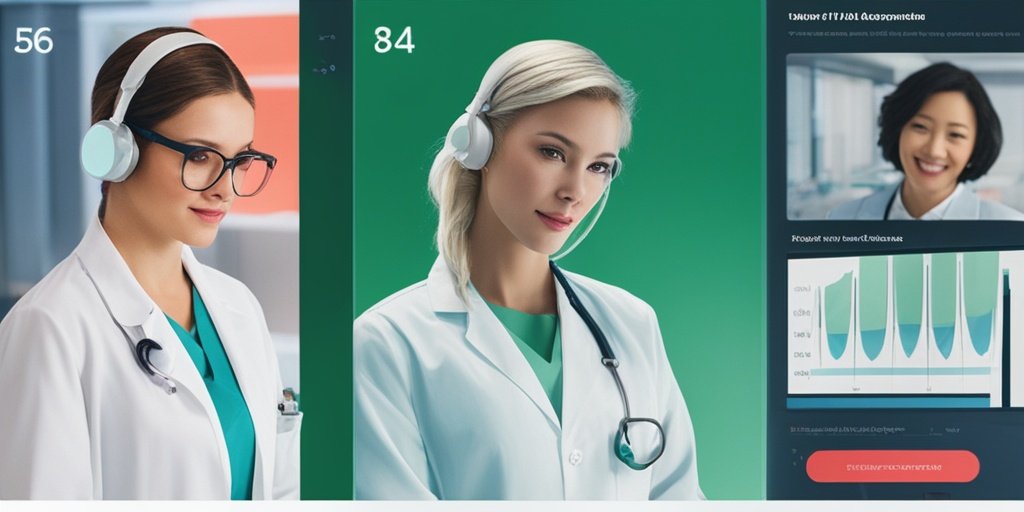⚡ Quick Summary
A recent study evaluated the performance of ChatGPT-4 Omni in the United States Medical Licensing Examination (USMLE) disciplines, revealing an impressive accuracy of 90.4% across 750 clinical vignette-based questions. This performance significantly surpasses its predecessors, indicating a promising role for large language models in medical education. 📚
🔍 Key Details
- 📊 Dataset: 750 clinical vignette-based multiple-choice questions
- 🧩 Models compared: ChatGPT 3.5 (GPT-3.5), ChatGPT 4 (GPT-4), ChatGPT 4 Omni (GPT-4o)
- ⚙️ Assessment method: Standardized accuracy evaluation
- 🏆 Performance metrics: GPT-4o: 90.4%, GPT-4: 81.1%, GPT-3.5: 60.0%
🔑 Key Takeaways
- 📈 GPT-4o achieved the highest accuracy in USMLE disciplines.
- 💡 Notable performance in social sciences (95.5%), behavioral and neuroscience (94.2%), and pharmacology (93.2%).
- 🩺 Clinical skills accuracy: 92.7% in diagnostics and 88.8% in management.
- 📉 Medical student average: 59.3% accuracy, highlighting the models’ superior performance.
- 🔍 Implications for education: Potential use of LLMs as educational aids for medical students.
- ⚖️ Need for structured curricula to guide the integration of LLMs in medical education.
- 🔄 Ongoing critical analyses are essential to ensure reliability and effectiveness.

📚 Background
The integration of large language models (LLMs) into medical education has gained traction, particularly following studies by the National Board of Medical Examiners. However, there remains a lack of detailed analysis regarding their performance across specific medical content areas, which is crucial for assessing their utility in training future healthcare professionals.
🗒️ Study
This study aimed to systematically evaluate the accuracy of different versions of ChatGPT—specifically GPT-3.5, GPT-4, and GPT-4 Omni—in various USMLE disciplines and clinical skills. By utilizing a set of 750 clinical vignette-based multiple-choice questions, the researchers sought to characterize the performance of these models and identify their strengths and weaknesses in medical education.
📈 Results
The results were striking: GPT-4o achieved an accuracy of 90.4%, significantly outperforming GPT-4 at 81.1% and GPT-3.5 at 60.0%. In clinical skills, GPT-4o demonstrated a diagnostic accuracy of 92.7% and a management accuracy of 88.8%, both of which were markedly higher than the average accuracy of medical students at 59.3% (95% CI 58.3-60.3).
🌍 Impact and Implications
The findings from this study suggest that GPT-4o has substantial potential as an educational tool for medical students. Its superior performance in USMLE disciplines and clinical skills indicates that LLMs could enhance learning outcomes. However, careful consideration is necessary when integrating these technologies into medical curricula, emphasizing the importance of structured guidance and ongoing evaluation to ensure their effective use.
🔮 Conclusion
The impressive performance of GPT-4o in this study highlights the transformative potential of LLMs in medical education. As we continue to explore the integration of these technologies, it is crucial to maintain a focus on structured curricula and critical assessments to maximize their benefits while ensuring reliability and effectiveness in training future healthcare professionals.
💬 Your comments
What are your thoughts on the integration of AI technologies like ChatGPT in medical education? We would love to hear your insights! 💬 Share your comments below or connect with us on social media:
ChatGPT-4 Omni Performance in USMLE Disciplines and Clinical Skills: Comparative Analysis.
Abstract
BACKGROUND: Recent studies, including those by the National Board of Medical Examiners, have highlighted the remarkable capabilities of recent large language models (LLMs) such as ChatGPT in passing the United States Medical Licensing Examination (USMLE). However, there is a gap in detailed analysis of LLM performance in specific medical content areas, thus limiting an assessment of their potential utility in medical education.
OBJECTIVE: This study aimed to assess and compare the accuracy of successive ChatGPT versions (GPT-3.5, GPT-4, and GPT-4 Omni) in USMLE disciplines, clinical clerkships, and the clinical skills of diagnostics and management.
METHODS: This study used 750 clinical vignette-based multiple-choice questions to characterize the performance of successive ChatGPT versions (ChatGPT 3.5 [GPT-3.5], ChatGPT 4 [GPT-4], and ChatGPT 4 Omni [GPT-4o]) across USMLE disciplines, clinical clerkships, and in clinical skills (diagnostics and management). Accuracy was assessed using a standardized protocol, with statistical analyses conducted to compare the models’ performances.
RESULTS: GPT-4o achieved the highest accuracy across 750 multiple-choice questions at 90.4%, outperforming GPT-4 and GPT-3.5, which scored 81.1% and 60.0%, respectively. GPT-4o’s highest performances were in social sciences (95.5%), behavioral and neuroscience (94.2%), and pharmacology (93.2%). In clinical skills, GPT-4o’s diagnostic accuracy was 92.7% and management accuracy was 88.8%, significantly higher than its predecessors. Notably, both GPT-4o and GPT-4 significantly outperformed the medical student average accuracy of 59.3% (95% CI 58.3-60.3).
CONCLUSIONS: GPT-4o’s performance in USMLE disciplines, clinical clerkships, and clinical skills indicates substantial improvements over its predecessors, suggesting significant potential for the use of this technology as an educational aid for medical students. These findings underscore the need for careful consideration when integrating LLMs into medical education, emphasizing the importance of structured curricula to guide their appropriate use and the need for ongoing critical analyses to ensure their reliability and effectiveness.
Author: [‘Bicknell BT’, ‘Butler D’, ‘Whalen S’, ‘Ricks J’, ‘Dixon CJ’, ‘Clark AB’, ‘Spaedy O’, ‘Skelton A’, ‘Edupuganti N’, ‘Dzubinski L’, ‘Tate H’, ‘Dyess G’, ‘Lindeman B’, ‘Lehmann LS’]
Journal: JMIR Med Educ
Citation: Bicknell BT, et al. ChatGPT-4 Omni Performance in USMLE Disciplines and Clinical Skills: Comparative Analysis. ChatGPT-4 Omni Performance in USMLE Disciplines and Clinical Skills: Comparative Analysis. 2024; 10:e63430. doi: 10.2196/63430